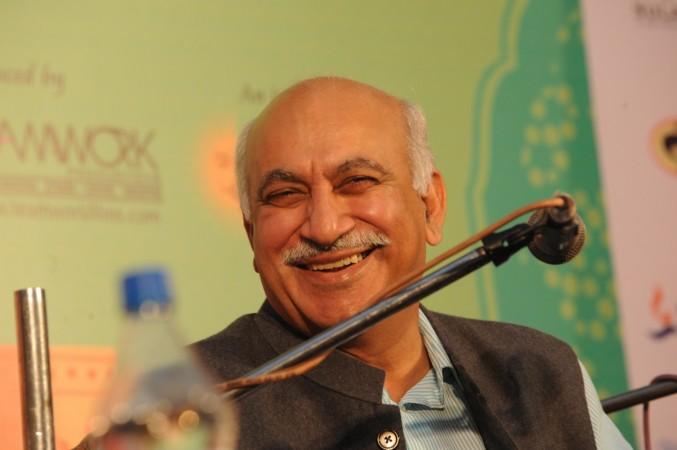
India is considering tightening sexual harassment laws, government officials said on Thursday, after an avalanche of complaints of abuse lodged by women in recent weeks thrust the issue to the forefront of politics.
Changes to the laws are being considered as the government weighs different proposals to tackle harassment, one of the officials said.
"The official announcement could come next week," said the official, who works in the prime minister's office.
The officials declined to give any details about possible changes.
The government focus on the law has come after women's rights groups complained that the existing laws do not go far enough to address the widespread problem of sexual harassment.
A junior government minister resigned on Wednesday after he faced sexual harassment accusations from more than a dozen women.
The allegations related to when the junior foreign minister, MJ Akbar, was a top newspaper editor. He is the biggest casualty since the #MeToo movement in India gained traction in recent weeks.

Akbar has denied wrongdoing and said he was stepping down so that he could fight the allegations in court.
A Delhi court began proceedings on Thursday in a defamation suit filed by Akbar against one of the women who levelled accusations against him.
The previous government passed a workplace harassment act and an act to amend criminal law in 2013. The latter made sexual harassment, stalking and voyeurism crimes.
But women's groups say a requirement that accusations be made to a workplace complaints committee within three months is unfair as some women can not quickly muster the courage to take that step.
The government should review certain provisions of the sexual harassment prevention law, said Rebecca John, a lawyer who is defending the woman against whom Akbar has filed a defamation suit.
"The provision of filing a complaint within three months should be made more flexible," she said.
'FIGMENT'
In the case of many of the recent complaints against journalists, actors and other public figures, many of which were made under the #MeToo hashtag on social media, the accusations related to incidents that happened years ago.
Women's groups also say that the law doesn't make clear who in a workplace is in charge of ensuring compliance and is therefore responsible if its provisions are not followed.
The workplace law also only requires an organisation employing more than 10 people to set up an internal complaints committee to hear and redress sexual harassment grievances, but critics say many companies don't do that.
For now, the focus of public attention is the Akbar case. He has filed a criminal defamation suit against journalist Priya Ramani who has accused him of harassment.
One of Akbar's lawyers, Geeta Luthra, said Ramani had caused irreparable damage to Akbar's reputation built up over four decades.
Ramani sparked a storm when she tweeted last week that an article she wrote for Vogue India in October 2017 concerning sexual harassment by an unidentified editor was about Akbar.
In the article, she had described him as "an expert on obscene phone calls, texts, inappropriate compliments and not taking no for an answer". Adding: "You know how to pinch, pat, rub, grab and assault."
Luthra, citing some of Ramani's tweets and articles in court, said they were a "figment of imagination".
Ramani was not in court. She said on Twitter on Wednesday she looked forward to the day she would "get justice in court".
Her lawyer, Rebecca John, declined to make any immediate comment saying she would do so if the court calls her client.
The next hearing is on Oct. 31.














